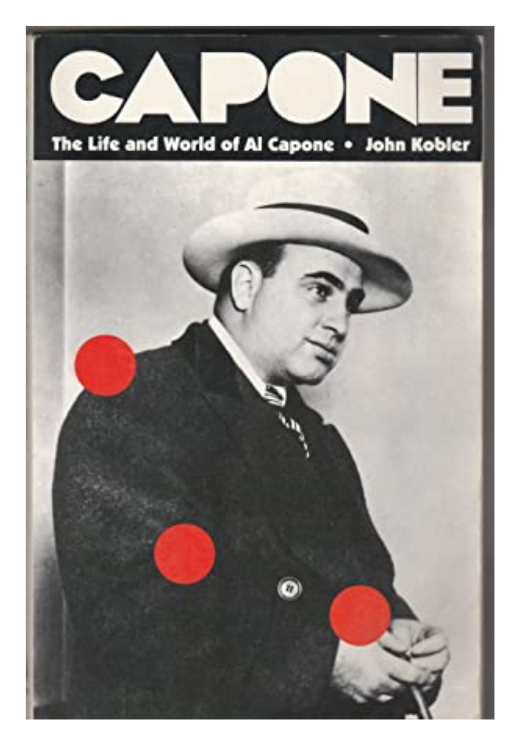Whenever I speak with my professional network, they complain they don’t have time to read for leisure and entertainment because they’re busy reading books related to work.
I say, why compromise? Let me provide an example: the biography of Al Capone is something I’d recommend to anyone interested in people, psychology and how to run a business.
Context: Al Capone, bribed elected officials, colluded with bankers and everyone else in the food chain. They tried to charge him for alcohol production, drug smuggling and distribution which they couldn’t…and in the end they sent him to jail on tax evasion.
You might be thinking, “what in the world can the Mafia teach a legitimate business(wo)man?!”
A lot!
We think that we’re morally superior than Al Capone but let me explain how Al Capones process of rationalization is similar to ours.
💭 One of the biggest lessons I’ve learned in life that helps me make sense of people is how we don’t usually see ourselves as culpable. Maybe this is something that’s written into our DNA, or maybe it’s just the way that we’ve evolved. But the truth is that we human beings generally think that we’re good–even if we aren’t!
💭 Al Capone is known to have said, “I have spent the best years of my life giving people the lighter pleasures, helping them have a good time, and all I get is abuse, the existence of a hunted man.”
💭 These are the words of a man who was the most sinister gang leader who ever shot up Chicago. However, Capone thought that he was a good person who was helping others…
Lesson learned: WE ALL THINK WE ARE GOOD PEOPLE WHO HELP OTHERS.
💭 We judge him because he seems so deluded but is this example an extreme one? It probably is, because Capone was by no means a normal guy. However, this doesn’t mean that the example doesn’t work.
💭 No matter who it is–Capone, your neighbour and even your sweet Grandma–most of us will likely defend the things we’ve done. We’re not readily going to admit to being the culpable party. We’ll find reasons to justify why we did what we did.
Rationalization is actually an important defense mechanism that human beings have developed in order to keep going.
What implications does this psychological fact have on the way you as a leader might deal with your HR? How about in performance management? What about those of us in the nonprofit space? or those of us in the private sector?
I’ll let you fill in the gaps!
All I’m suggesting is that any book can be a professional development book. Now you get to read for leisure and extract lessons to apply to work (and life). You really can win on all fronts! 🙌🏾😝
